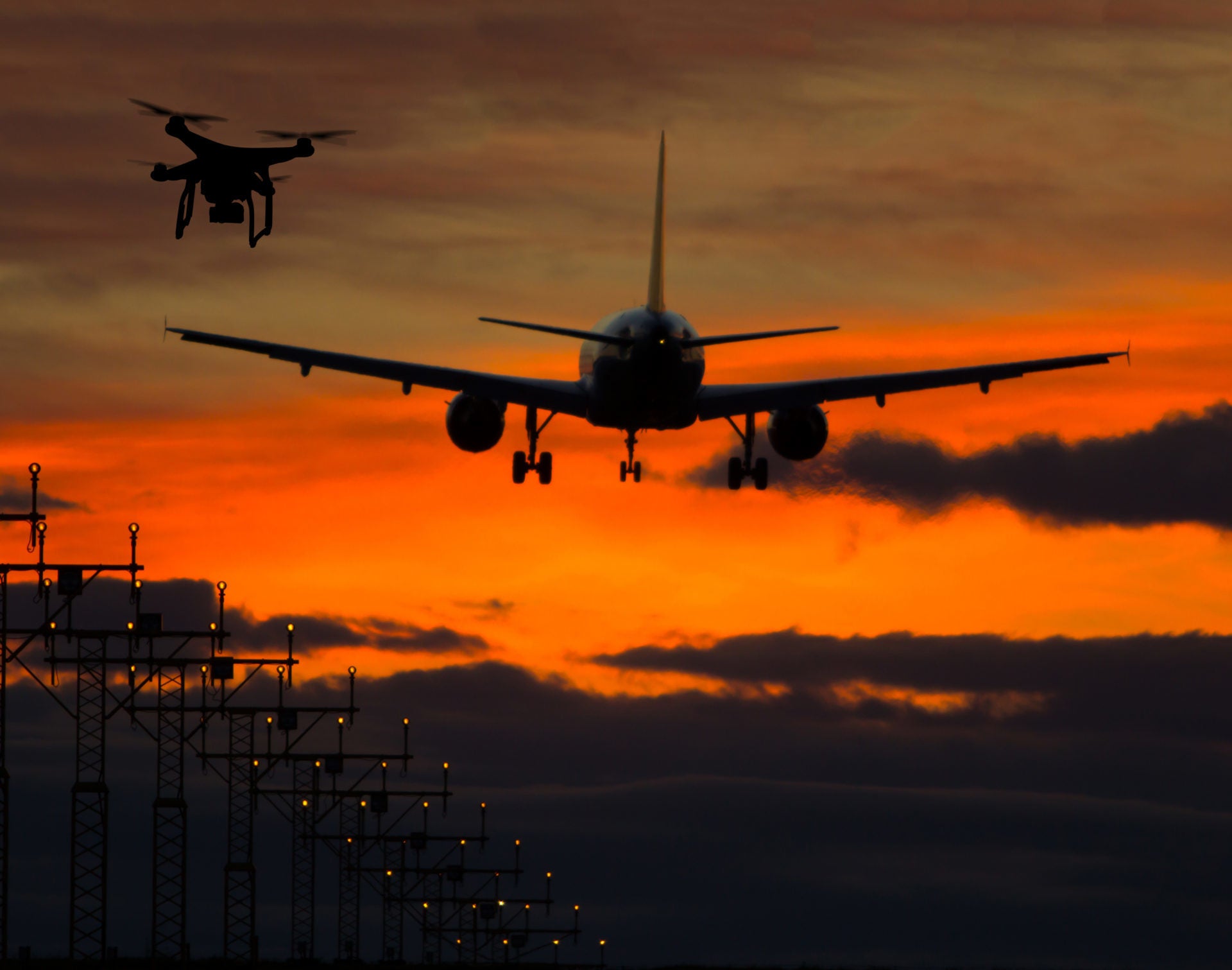
As the UK government and UK airports reflect on last months Gatwick drone disruption, drone experts have reiterated that anti-drone technology, not new drone laws, is the solution to preventing a similar incident.
Between 19 and 21 December, hundreds of flights were suspended at the Surrey airport after drone sightings were reported. The incident exposed the vulnerability of airports and the inability of the police to prevent illegal drone use.
The misery experienced by 140,000 passengers caused many to call for tougher new drone laws.
This week saw the first response to these calls as the UK government announced police will be given new powers to tackle the illegal use of drones.
They give police additional means to land, seize and search drones. The no-fly zone around airports will also be extended.
Nicholas Grossman, professor of international relations at the University of Illinois and author of ‘Drones and Terrorism’, told Verdict that these police powers “could have some meaningful impact”, but said a good anti-drone system should be the priority.
How well do you really know your competitors?
Access the most comprehensive Company Profiles on the market, powered by GlobalData. Save hours of research. Gain competitive edge.

Thank you!
Your download email will arrive shortly
Not ready to buy yet? Download a free sample
We are confident about the unique quality of our Company Profiles. However, we want you to make the most beneficial decision for your business, so we offer a free sample that you can download by submitting the below form
By GlobalDataIt is a sentiment shared by Defence Secretary Gavin Williamson, who yesterday told press during a visit to RAF Marham in Norfolk that all commercial airports need to invest in anti-drone technology. The government has also said that all airports should have ‘military-grade’ protection.
It follows announcements last week by Gatwick and Heathrow airport that they intend to spend millions of pounds on new anti-drone technology.
“Police powers to land and search drones along with public registration databases could help with accidents – such as determining who’s liable – and some domestic criminals,” Grossman said.
However, the value of such measures is “limited” when it comes to drone-borne terrorism, he added.
“Quadcopters and similar models are available for purchase online from various countries, and anyone planning on using a drone for terrorism is unlikely to register it.”
Tough new drone laws will only punish honest users
The Gatwick drone incident sparked calls for tougher laws, but drones are already subject to a raft of regulations – especially around airports. Such calls have raised concerns of a kneejerk reaction among drone experts and enthusiasts.
“Anything above the current proposed legislation would not help prevent incidents like Gatwick and only hurt law-abiding pilots,” amateur drone photographer Eddie Fisher told Verdict.
“It will have no effect on criminal pilots and incidents such as Gatwick.”
That’s because even with stricter laws there is no way to stop someone building a drone with off the shelf parts, he said.
Such a homemade drone would not conform to any regulations, safeguards or laws.
What does the current legislation say about drone use?
Last July the UK introduced a raft of new drone laws. Here are the key points:
- Height limit of 120m to prevent flying into the airspace of planes
- Legal responsibility put solely on the drone pilot
- A maximum prison sentence of five years for endangering an aircraft
- Drones weighing over 250 grams will have to register with the CAA (from 30 November 2019)
- Drone pilots must take an online safety test (from 30 November 2019)
There are also a number of safeguards available in most commercially available drones, such as an identifying chip linked to the pilot, GPS data showing police the pilot’s location and geofencing to block drones from entering prohibited areas.
“Writing new superfluous laws is cheap”
Both Grossman and Fisher said that the new police powers would not cause too much disruption to law-abiding drone users, with most already planned to be rolled out this year following last year’s consultation.
“As with any regulations, these restrictions will create a burden on honest drone users,” said Grossman.
“They’ll have to register, which takes a bit of time and could face fines or other punishment if they don’t. But since honest drone users, by definition, don’t plan on flying into any restricted airspace or conducting any other illegal activity, the impact on them will likely be minimal.”
Gatwick and Heathrow airport have not disclosed the type of anti-drone technology they intend to implement. Some systems on the market include high-resolution radar for detection, with lasers, ballistics, nets and jammers some of the possible ways to bring down illegal drones.
“Writing new superfluous laws is cheap,” said Fisher. “Actually doing something about our aerial security is expensive.”
“To the extent the Gatwick incident was an accident or British pranksters, the new [police] powers could prevent something similar in the future,” said Grossman. “However, they’re unlikely to do much regarding deliberate efforts to shut down air travel – with the exception of drone-repelling tech.”
Read more: Who is behind the Gatwick drone incident? Hobbyist theory met with suspicion






